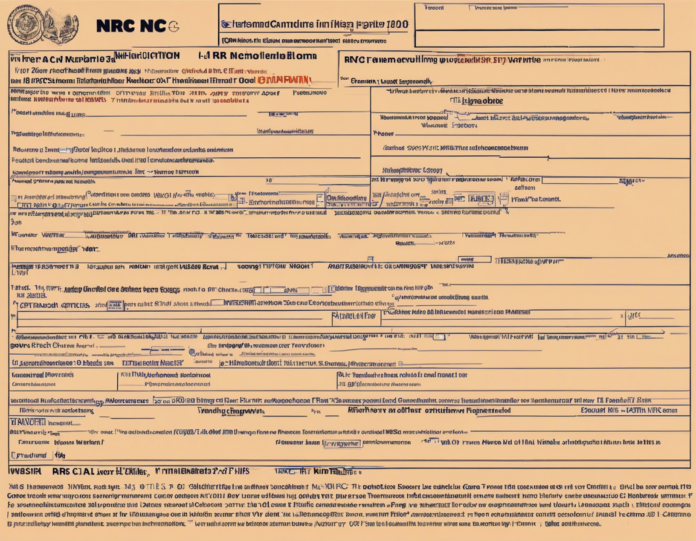Introduction
The National Register of Citizens (NRC) is a crucial topic that has gained significant attention in recent years due to its implications on citizenship and immigrant populations in certain countries. In this comprehensive guide, we will delve into the meaning and significance of NRC, its origins, the process involved, as well as its consequences and controversies. Let’s unravel the complexities surrounding the NRC to gain a better understanding of its implications.
What is NRC?
The National Register of Citizens (NRC) is a government record that contains names of genuine Indian citizens residing in the state of Assam, India. It was first introduced in 1951 to distinguish illegal immigrants from bonafide Indian citizens. The main objective of the NRC is to create a comprehensive list of legal residents and identify and exclude those living in the country unlawfully.
Origins of NRC
The foundation of the NRC in Assam can be traced back to the Assam Accord of 1985, a memorandum of settlement signed between the Indian government and the leaders of the Assam Movement. The Accord aimed to resolve the longstanding issue of illegal immigration in Assam and maintain the demographic balance in the state.
Process of NRC
The process of updating the NRC involves extensive verification of documents to establish the legacy and citizenship of individuals and their families. Applicants are required to provide documents proving their ancestry and residency in Assam before a specific cut-off date. These documents include birth certificates, land records, and other relevant paperwork.
Significance of NRC
The NRC holds immense significance as it plays a pivotal role in determining the citizenship status of individuals residing in Assam. It aims to weed out illegal immigrants while ensuring the protection and rights of genuine Indian citizens. The NRC is crucial in maintaining the social, cultural, and political fabric of the region.
Consequences of NRC
The implementation of the NRC has led to various consequences affecting the lives of millions of people. Those excluded from the list face the risk of statelessness and deprivation of basic rights and entitlements. The process has also sparked debates on human rights violations and ethnic discrimination.
Controversies Surrounding NRC
The NRC has been mired in controversies due to the complexities and challenges associated with its implementation. Critics argue that the process is flawed and biased, disproportionately impacting marginalized communities and vulnerable groups. The lack of proper documentation and the potential for arbitrary exclusions have raised concerns among various stakeholders.
Frequently Asked Questions (FAQs)
Q1: What is the purpose of the NRC?
A1: The NRC aims to create a list of genuine Indian citizens residing in Assam and identify illegal immigrants living in the state.
Q2: Who is responsible for updating the NRC?
A2: The government of Assam, in coordination with the Registrar General of India, is responsible for updating and maintaining the NRC.
Q3: What documents are required for NRC verification?
A3: Applicants need to provide documents such as birth certificates, land records, and other proof of ancestry and residency in Assam.
Q4: What happens to those excluded from the NRC?
A4: Individuals excluded from the NRC are at risk of statelessness and may face challenges in accessing basic rights and services.
Q5: Is the NRC process fair and unbiased?
A5: The fairness and impartiality of the NRC process have been a subject of debate, with concerns raised about potential biases and exclusions.
Q6: Can individuals appeal their exclusion from the NRC?
A6: Yes, individuals can appeal their exclusion from the NRC at designated Foreigners Tribunals to prove their citizenship status.
In conclusion, the National Register of Citizens (NRC) is a significant mechanism aimed at ensuring the legitimacy of citizenship in Assam. While it serves as a tool to identify illegal immigrants and protect the rights of genuine citizens, the NRC process is not without its challenges and controversies. It is essential to address the concerns surrounding the NRC and uphold the principles of fairness, inclusivity, and justice in its implementation.













